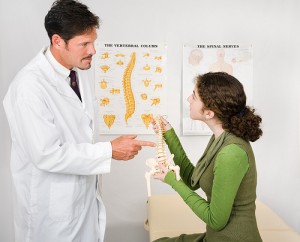Blood Test Demonstrates Chiropractic Works!
 Chiropractic Works, Scientifically Proven
Chiropractic Works, Scientifically Proven
Science has proven what millions of people have known for years: you feel good after a chiropractic treatment (AKA Adjustment).
A study published in Journal Orthopaedic and Sports Physical Therapy verified what happens in the body after an adjustment. Scientist at the University of Spain used students that were asymptomatic (without pain) to receive chiropractic adjustments in in three categories: neck, midback or none at all. Blood tests were performed three times one each volunteer: before the adjustment, immediately after the adjustment and then two hours after the adjustment. Specific hormonal levels were measured to see if there was a change due to the adjustment.
How The Body Responded
There were four hormone levels measured in the blood: Oxytocin, neurotensin, corisol and orexin A. Briefly, oxytocin is a neurotransmitter found in the brain. Elevated levels aid in bonding moments, such as when a women is giving birth, breastfeeding or even when you are kissing your loved one. Neruotensin seems to act with serotonin in the brain, neutralizing the pain caused from stress. It is also believed to affect the level of oxytocin. Cortisol affects the swelling or edema by blocking inflammation in the early stages. Increased levels also aid in wound healing and have found to be an effective painkiller. Orexin A is also associated with easing pain.
The Study Results
Chiropractic adjustments increased the levels of oxytocin, neurotnsin and cortisol, proving that chiropractic care can affect the hormone levels. It was also found that neck adjustments were more effective than mid-back adjustments in increasing these hormone levels. This study demonstrates that chiropractic care is making definite changes in your body’s nervous system and has a positive affect on your pain level.
There you have it: blood tests prove chiropractic works! Why suffer any longer, call our office at (314) 731-4383 to schedule your appointment, or email us at drmartinschmaltz@gmail.com. All you have to lose is your pain!
Reference
Plaza-Manzano, G., et al. Changes in biochemical markers of pain perception and stress response after spinal manipulation. Journal Orthopaedic and Sports Physical Therapy 2014;44(4):231-9. doi: 10.2519/jospt.2014.4996.
